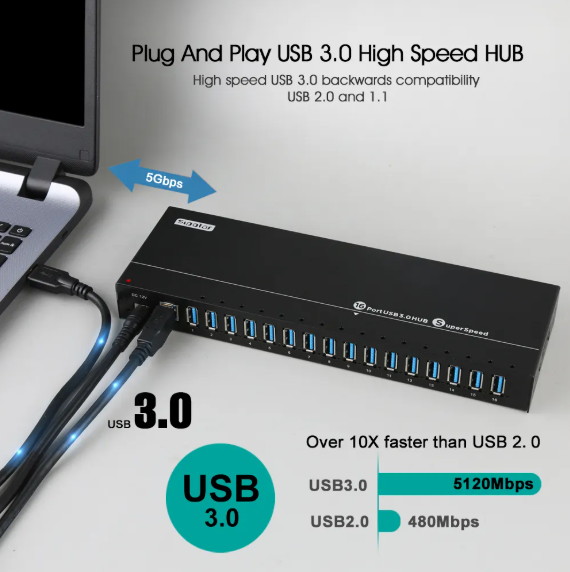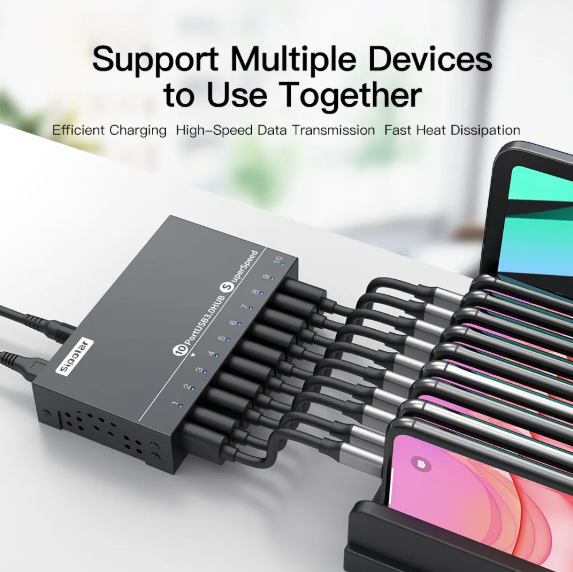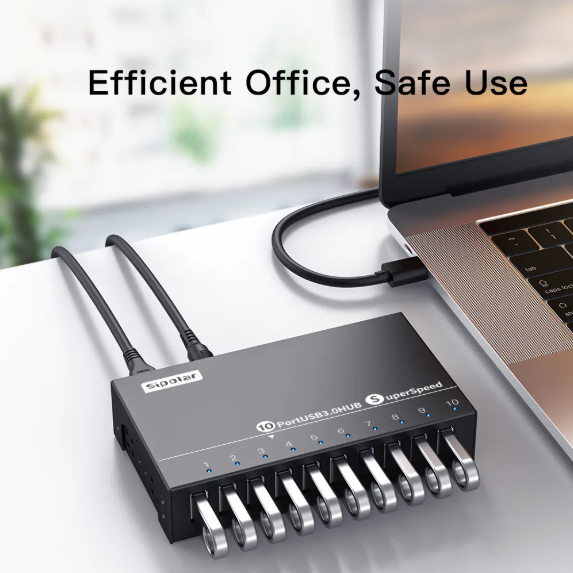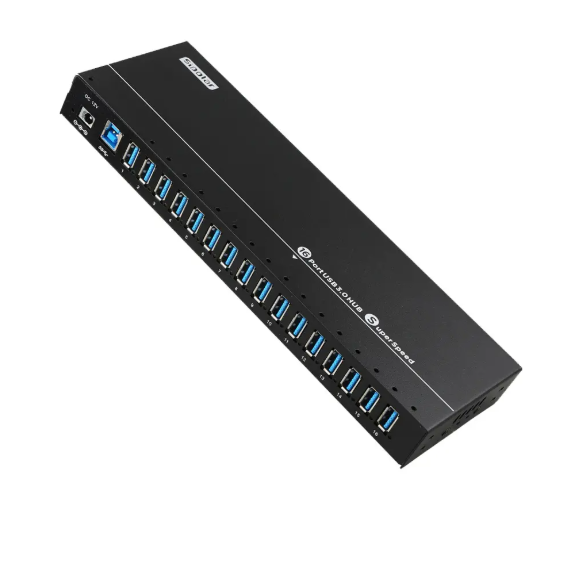High-Speed vs. Standard USB Hubs: Which One Fits Your Business Needs?
High-Speed vs. Standard USB Hubs: Which One Fits Your Business Needs? (Hint: It’s Not What You Think)

Confession time: Last quarter, one of our longtime clients—a logistics company—ordered 500 "high-speed" USB hubs because their warehouse staff kept complaining about slow barcode scanners. Turns out? They didn’t need high-speed hubs. They needed properly shielded standard hubs near electromagnetic forklift chargers.
Moral of the story? Speed isn’t always the hero. Let’s cut through the marketing noise.
The Real Difference Isn't Just "Faster"
(And why your accountant will thank you)
Standard USB 2.0/3.0 Hubs
- What they do well:
- Cheap as chips (5/unit wholesale)
- Perfect for keyboards, mice, card readers, or basic peripherals
- Sips power (no external adapter needed)
- Where they stumble:
- Max 5Gbps throughput (USB 3.0) — struggles with 4K video or multi-drive backups
- "Daisy-chaining" hubs? Kiss stability goodbye.
High-Speed USB 3.2 Gen 2 / USB4 Hubs
- The good stuff:
- Blistering 10–40Gbps speeds (hello, 8K video editors!)
- Handles multiple SSDs like a pro
- Usually includes USB-C Power Delivery (up to 100W)
- The catch:
- Costs 3–5x more (25/unit)
- Often needs external power bricks (desk-clutter alert)

3 Business Scenarios Where Your Choice Actually Matters
Scenario 1: The Call Center (Standard hubs win, but with a twist)
- Reality: Agents use headsets, basic keyboards, and maybe a scanner. Speed? Irrelevant.
- The killer problem: Ports dying from 12-hour/day plug-unplug cycles.
- Our fix: We ship them standard hubs with gold-plated ports rated for 15,000+ insertions (costs 10k/year in replacements).
Scenario 2: The Video Production Studio (High-speed isn’t optional)
- Pain point: Editors transferring 500GB RAW files via USB-A drives.
- "Speed test" fail: A standard USB 3.0 hub dropped transfer rates by 60% during multi-cam edits.
- Solution: Our 10Gbps hubs with dedicated channels per port (no data throttling) cut export times by half.
Scenario 3: The Hybrid Office (The messy middle ground)
- Truth bomb: 70% of your team just charges phones and connects a mouse.
- But: Sales teams backing up client demos on SSDs? They need speed.
- Hybrid fix: Tiered deployment — standards for admin desks, high-speed for client-facing teams (saves 22% vs. all high-speed).
The 4 Questions We Ask Clients Before Recommending
(Steal these for your procurement checklist)
"What’s plugging into these daily?" (If no cameras/SSDs, save your budget.)
"Are they near motors, microwaves, or MRI machines?" (EMI interference murders cheap hubs — even "fast" ones.)
"Who unplugs devices 10x/day?" (Receptionists wreck ports faster than gamers.)
"Do your people use MacBooks or Surface Pros?" (Their USB-C obsession changes everything.)
One More Thing Engineers Won’t Tell You
Chipset quality > Fancy specs That "10Gbps" hub using a no-name chipset? It’ll benchmark at 3Gbps when warm. We dissected 17 brands last year — only 3 hit claimed speeds under stress.
How we avoid this:
- Uses Realtek/VIA chips exclusively (test reports available)
- Thermal paste on controller chips (yes, like gaming PCs)
- 90-day real-world testing with actual office cables (not lab-perfect ones)

So… Which One Should YOU Choose?
Go STANDARD if: You’re outfitting a hotel room, classroom, or any space with basic peripherals. Pro tip: Spend savings on extra surge protection.
Go HIGH-SPEED if: You handle large files daily (design studios, R&D labs, media teams). Splurge on 100W USB-C ports — future-proofs for next-gen laptops.
Go HYBRID if: Your needs are mixed (most are). Let’s build a custom batch.

Got USB Hub Headaches? Let’s Fix Them
→ Reply below with your toughest hub issue (I’ll give free advice!). → DM "SPEEDTEST" for our independent benchmark report (no sales BS).
We’ve shipped 2.3 million hubs — from Rwandan coffee co-ops to Silicon Valley startups. Trust me: The right hub shouldn’t make you think.
#SupplyChain #ElectronicsManufacturing #ITProcurement #USBCHub
 Behind the Scenes: How our brand USB Hub Ensures Quality in Every USB Hub
Behind the Scenes: How our brand USB Hub Ensures Quality in Every USB Hub
 OEM/ODM USB Hubs: How We Customize Solutions for Global Brands (and Survived a Berlin Fire Drill)
OEM/ODM USB Hubs: How We Customize Solutions for Global Brands (and Survived a Berlin Fire Drill)
 The Future of USB Hubs: Trends in Type-C, Fast Charging, and Smart Power Management
The Future of USB Hubs: Trends in Type-C, Fast Charging, and Smart Power Management
 How Our Multi-Port USB Hubs Solve Connectivity Issues for Offices & Cafés
How Our Multi-Port USB Hubs Solve Connectivity Issues for Offices & Cafés

